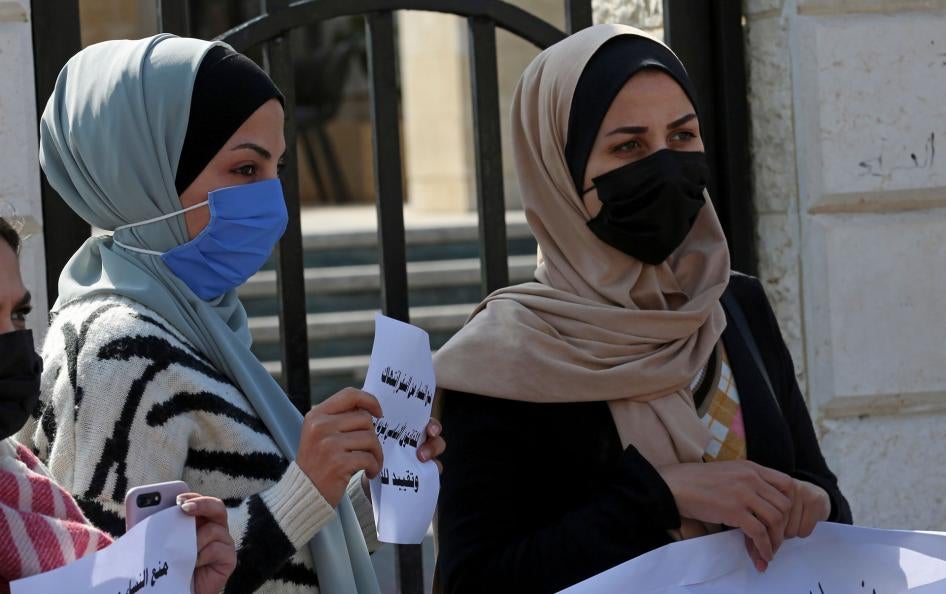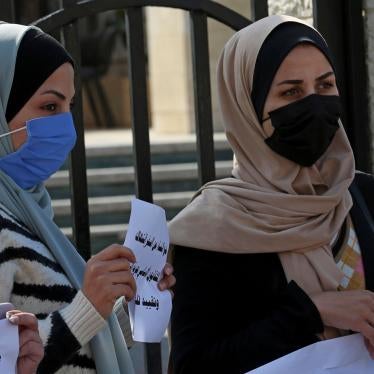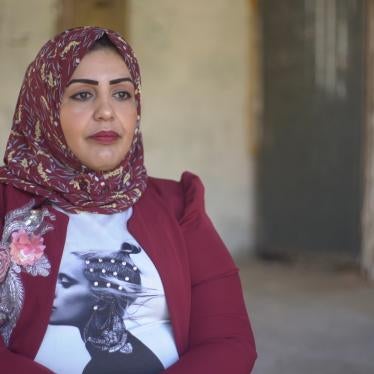On November 3 a court in Gaza will consider the request of Afaf al-Najar, a 19-year-old woman, to lift a travel ban imposed by her father. She told Human Rights Watch that on September 21, Palestinian border officials at the Rafah Crossing between Gaza and Egypt blocked her from traveling abroad because her father had applied for a judicial travel ban. She was heading to Turkey where she had a scholarship to pursue a degree in media and communications.
In February 2021 Gaza’s Supreme Judicial Council issued a decision that a male guardian may apply to a court to prevent an unmarried woman from traveling if they assess the travel will cause “absolute harm,” an undefined term. The decision also provides that a woman can be prevented from traveling as soon as the guardian applies for a court-ordered ban, before a judge has even granted a decision, as happened in al-Najar’s case.
Al-Najar said her father, whom she does not live with, claimed in his application that she did not get his permission to travel, but did not show how her leaving could cause “absolute harm.” If anything, she said, the travel ban caused her harm. She told Human Rights Watch that her father has not spoken to her since May.
At the initial court hearing on October 3 for her father’s travel ban request, al-Najar said the judge told her she could study for her degree in Gaza, suggesting that he expects her to remain there. Her father did not attend the hearing.
Palestinian human rights organizations have said such discriminatory restrictions violate Palestine’s Basic Law. It also violates women’s right to leave their own country without discrimination under international human rights law. Any restrictions on travel must be individual, for a legitimate reason, and proportionate.
For more than 14 years, Israel’s crushing closure, coupled with Egyptian restrictions at Rafah, have robbed the vast majority of Gaza’s over two million people of their right to free movement. Hamas’s authorities should lift the travel ban on Afaf al-Najar and the Supreme Judicial Council should withdraw its notice, so that women in Gaza can travel without discriminatory restrictions.
“I will keep trying until the travel ban is lifted,” al-Najar told us. “I don’t want another woman to face the same experience.”










